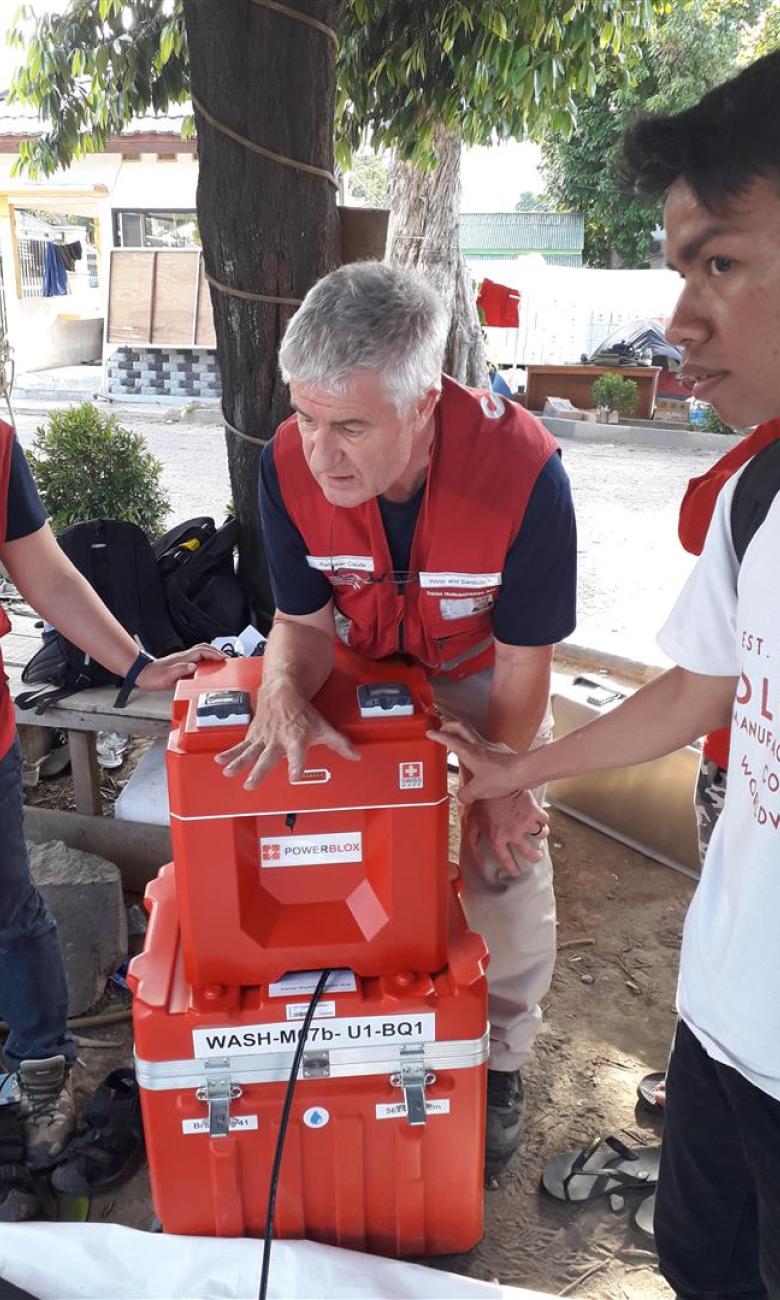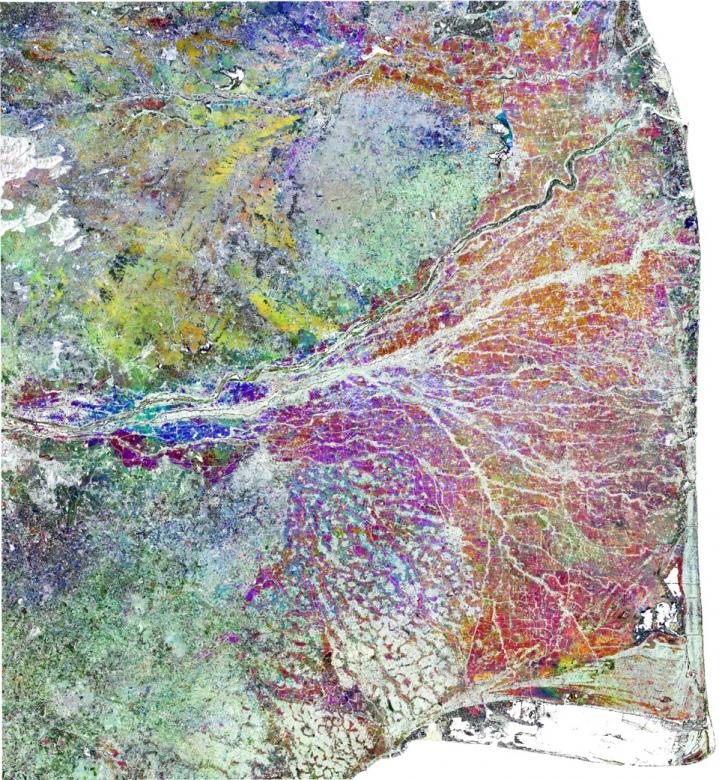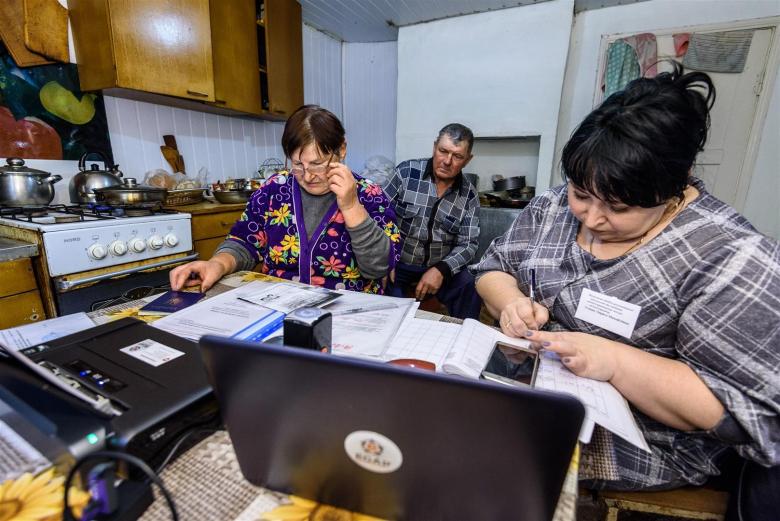Swiss tech to improve people’s lives
Technology has always impacted our lives. Increasingly, technology is also designed to address social, environmental and economic challenges. Switzerland uses Tech4good in its innovative approach to development cooperation. It closely collaborates with the private sector and research institutions to find practical ways of helping people to improve their lives.
How can technology be used for the common good? This is what Tech4good is all about. The use of technology to redistribute power, to create ways for people to connect or to address health needs are but a few examples of Tech4good according to Tech For Good Global, a UK-based information platform.
The Swiss Agency for Development and Cooperation works closely with Swiss enterprises, start-ups, universities and research units to provide tech solutions to challenges in development cooperation. Some examples of Tech4Good projects developed in Switzerland are set out below.

Swiss high tech for Asia’s rice farmers
Floods in the Indian state of Tamil Nadu led to over 300 deaths in November 2015 and destroyed the entire rice crop. Some 400 rice farmers lost their livelihoods. Thanks to innovative remote sensing technology, government agencies were able to quickly collect satellite data for an estimate of the damage. Only a few days after the heavy rains had started, the farmers received 50 tonnes of rice seeds and 30,000 seedlings in compensation. It allowed them to re-cultivate immediately after the disaster. The rapid compensation was made possible through the public-private partnership RIICE, or Remote Sensing-Based Information and Insurance for Crops in Emerging Economies.
The partnership, launched in 2011, promotes the use of innovative remote-sensing technologies to map and observe the growth of rice in several Asian countries, including Cambodia, India, Thailand, the Philippines and Vietnam. It involves the Swiss Agency for Development and Cooperation, the Swiss satellite data processing company sarmap, the German agency for international cooperation (GIZ), the International Rice Research Institute (IRRI), Asian governmental organisations and reinsurance company SwissRe. Switzerland is a key donor and engages in policy dialogue with the relevant ministries in the rice-producing countries to facilitate implementation of the technology. All the partners cooperate with the aim of reducing the vulnerability of smallholder rice farmers in low-income countries.

Millions of smallholder farmers throughout Asia produce rice for their livelihood. They are particularly exposed to the risk of having their crops destroyed by natural disasters, such as floods and droughts. While humanitarian aid often takes time to reach people affected by such disasters, RIICE supports smallholder rice farmers more efficiently, ensuring that compensation is provided quickly when crops fail. The process is expedited through sarmap’s cutting-edge technology: radar waves transmitted from satellites scan the Earth’s surface in rice cultivation areas, using sensors to detect and measure the radiation that is reflected from the target. The wave-based measurement has the advantage of functioning in all weather conditions, unlike optical satellite measurement. Rice fields can thus more easily be mapped and observed over the long term. Insurers gain valuable information to estimate future crop yields.
Power out of a Swiss box
The Indonesian island of Sulawesi was hit by a 7.5-magnitude earthquake on 28 September 2018. More than 3,400 people lost their lives in the earthquake and the subsequent tsunami. The disaster destroyed large parts of the region surrounding the city of Palu. Over 220,000 people lost their homes. Swiss Humanitarian Aid, in consultation with the Indonesian government, dispatched an emergency team to provide humanitarian aid in the form of drinking water purification and emergency shelter. For the first time, the humanitarian experts provided innovative technology for the local supply of electricity: a modular power system specifically designed for off-grid environments. This proved extremely useful, as Sulawesi’s power grid was disrupted and fuel very scarce. The power modules made by the Swiss company Power Blox provide electricity through solar energy that can be stored or immediately tapped. The decentralised system, based on the swarm principle, enables anyone to create a power network easily by putting the blocks together. Thanks to the power blocks, the experts could train local partners in running chlorine-producing devices (WATA) for water purification. In addition, the power blocks produced electricity for laptops, cell phones, computers, printers and the mobile water testing laboratory, which were all needed for the smooth running of the emergency operation.
The use of the power blocks for water purification was developed under a public-private partnership between Power Blox and Swiss Humanitarian Aid, which is part of the Swiss Agency for Development and Cooperation. The partnership, which has been running since 2017, demonstrates how cooperation experts and the private sector can find innovative ways of using tech for good in humanitarian emergencies.
E-governance innovation for Ukraine
Following the political change in 2014 the Ukrainian Government has embarked on an e-governance reform to improve citizens’ trust in public service delivery, combat corruption and enhance civic participation. A project designed by the Swiss Agency for Development and Cooperation has been supporting the reform through innovative information technology solutions. The E-Governance for Accountability and Participation (EGAP) programme has been running since 2015 and is being implemented by the East Europe Foundation Ukraine and the Swiss NGO Innovabridge. The project includes the use of IT to introduce quick and transparent business registration and enable simplified 24-hour online access to public services. The simplified procedures has helped 125,000 young families, single mothers, disabled and elderly people to access social services. Viktoria Chirva, a mother who applied for childbirth assistance via the new government website, said she was surprised how simple the procedure was. “It took 10-15 minutes to process the documents and six days later I got a money transfer.”
In order to increase citizenship participation, a local e-petition system has been set up and is now being used by 183 municipalities. Citizens’ interest is high: some 420,000 people have used the e-petition platform since it was launched two years ago.




